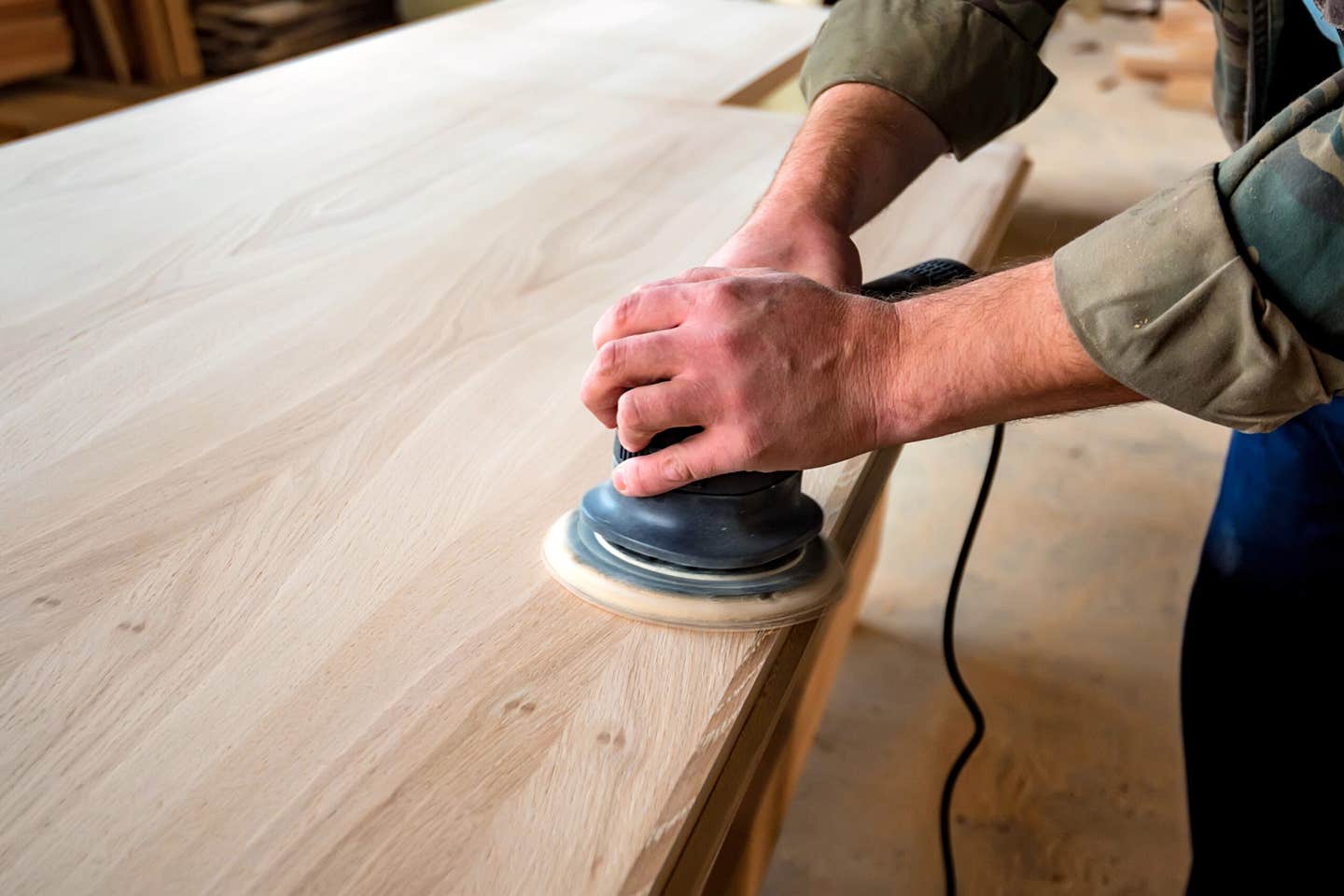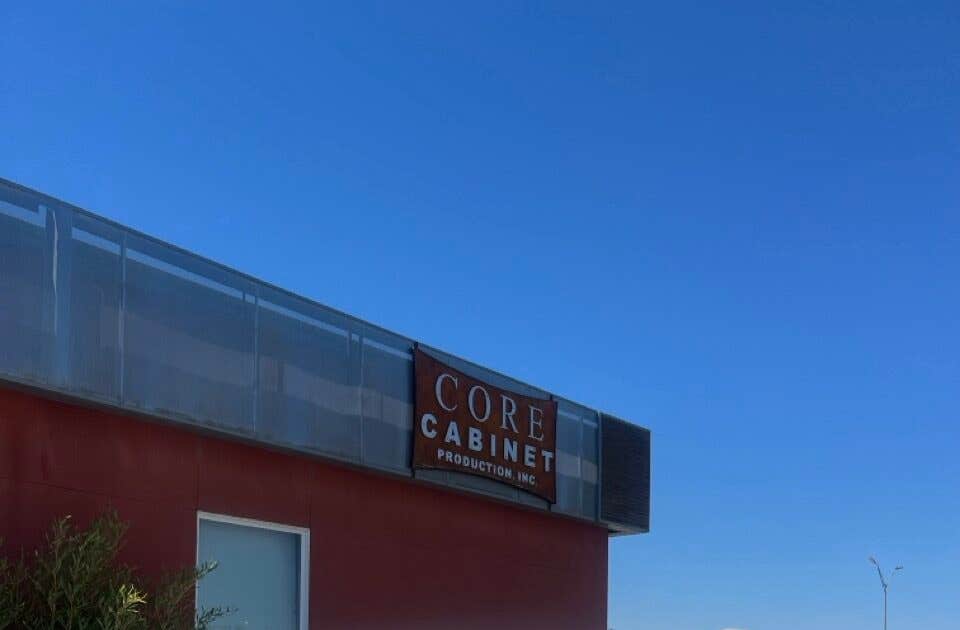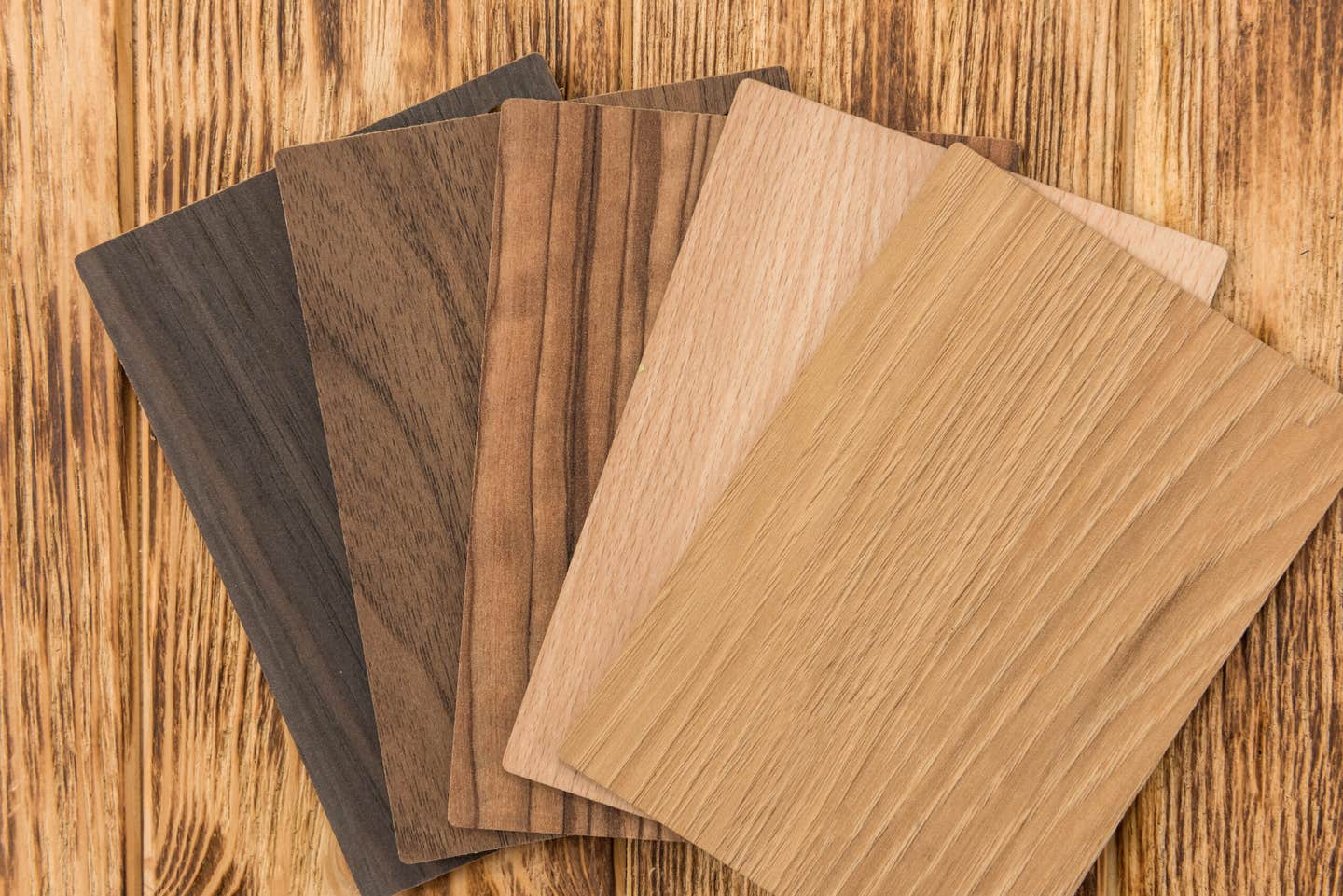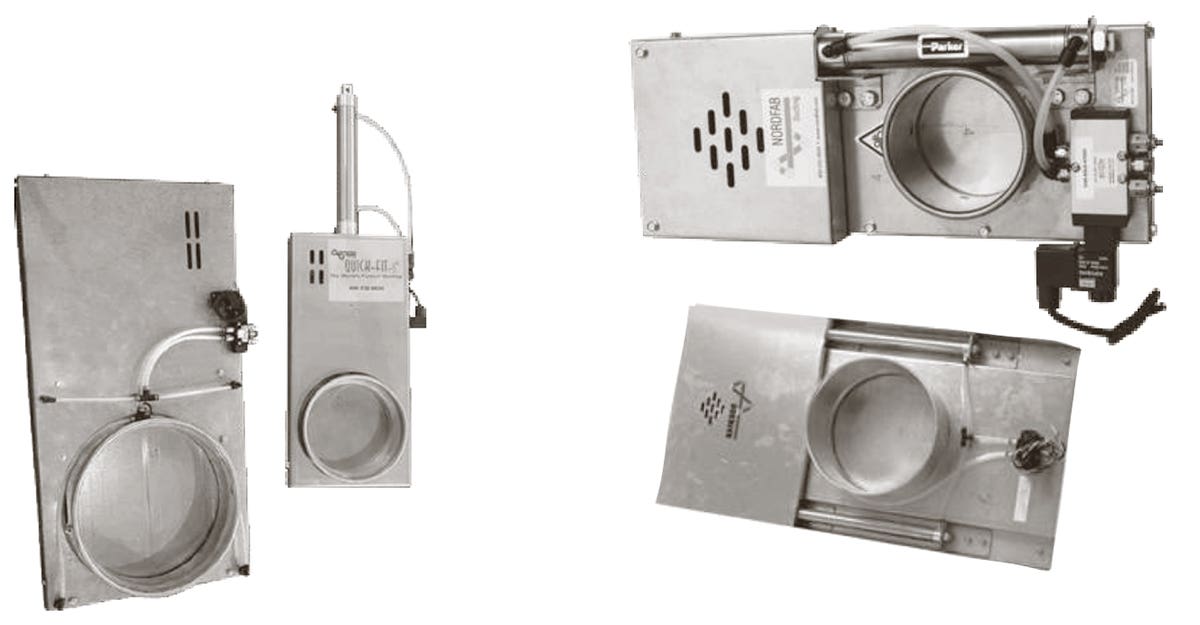Always a step ahead
Lee Hanson, owner of Custom Design Woodworks in Minden, Nev., has a straightforward approach to operating a successful cabinet shop: meet every deadline and offer high-quality customer service. There’s no…
Lee Hanson, owner of Custom Design Woodworks in Minden, Nev., has a straightforward approach to operating a successful cabinet shop: meet every deadline and offer high-quality customer service. There’s no wiggle room in either endeavor.
The former senior executive at a Fortune 500 company, Hanson says good business skills are essential for shop owners. “Never underestimate the power of understanding finances, how to read balance sheets and invoices and always stay on top of everything,” he says.
“I think there’s a misconception that if you’re a good cabinetmaker that you should be in business. If I were to give a suggestion to people who were starting a business, I would say they need to analyze their own abilities and the abilities of the people they’re going to be working with because, yes, it does take a good cabinetmaker to make a good cabinetmaking company, but it also takes a good business person.
“We’ve seen a lot of competitors come and go and they were good cabinetmakers, but they weren’t necessarily good business people. I was a hobbyist woodworker myself, but I believe my success comes more from my ability to run a business than my ability as a woodworker.”
Originally from Williston, N.D., Hanson worked as a carpenter doing interior finish work throughout his summers while in high school and college, which paid his tuition at North Dakota State University in Fargo, N.D., where he received an undergraduate degree in construction management.
“What came out of that was working for some major engineering companies working on projects on sight as their field engineer. I worked my way up through that industry and spent 20 years doing that. My last position was an executive at an energy company doing design and build, doing projects for the federal government which included industrial and commercial settings, military bases, shuttle-launch assembly buildings and other large structures.
But after two decades of doing strategic planning and giving presentations, Hanson says he felt so far removed from building anything with his hands he needed a change. Throughout his entire career, he’d always had a woodshop in his garage where he built furniture, cabinets and other items for friends and family. In 2003, while living in San Francisco, he purchased Custom Design Woodworks, a sole proprietorship in Meyers, Calif. Working with the former owner who became his employee for a short while, they got off to a good start in a strong economy.
“Finding this small business was good because it was well-established in the area and the owner was someone who was respected. It was an asset sale that came with the equipment, building, customer list and the company name. I set it up as a corporation at that point for liability purposes.”
Location, location
With Hanson running the business end, the company began averaging around 60 jobs a year, primarily in the South Lake Tahoe region and that volume is still the same. But he has since relocated because of various environmental regulations. He purchased his current building over the state line in 2006, saying Nevada is a much easier environment in which to conduct business.
“One of the things I knew was an issue when I bought the business was that it being located in California, specifically in El Dorado County, there was an issue around spray painting. There were some major acid-rain issues at that time I bought the business and the officials adopted some very stringent air-quality control measures similar to L.A. I was facing some real issues because they wanted to push us towards water-based finishes.
“I wanted to have the option to do anything that fits the bill, including lacquers and varnishes and oil-based paint. At the same time, my landlord was going to raise the rent on me. So I decided at that point, because we were straddling Nevada/Lake Tahoe and already going across county and state lines, that it made sense to move into Nevada because Nevada has air-quality rules that are less restrictive.”
The shop’s customers, representing a wide range of incomes, generally request kitchen and bathroom remodels, built-in shelving, entertainment centers and the occasional furniture piece.
“We don’t have a huge population here and about 80 percent of what we do is for absentee owners with vacation homes,” Hanson adds.
Most of the work comes by referrals. The shop regularly works with about a dozen contractors and several interior designers. Style preferences lean towards a rustic look, made with alder, poplar, cherry and maple.
“Pretty much any job we get has knots and color variation to it. Darker colors are getting more popular. For years, all we did was clear finish, but if there is a trend I’d say it is towards darker stains.
“We do some furniture on occasion. I find it very hard to be price-competitive on furniture because it’s so labor-intensive. But if someone wants a specific look and is willing to pay for it, yes, we do furniture. We had one customer who had us do a cherry kitchen with walnut inlay and they wanted chairs to match so we did nine chairs. It was brutal with all of the labor, but we did it because they were willing to pay for it,” says Hanson.
As for pricing, Hanson has a standard cabinet that he uses as a basis for a pricing formula based on linear footage and can add to or subtract from that model to meet his clients’ budgets.
“I think it’s important to just be able to listen to people. I’ve done hundreds of kitchens and you have to always guard against telling people what they want because they know what they want and sometimes it not what I would want.”
Down to business
Four employees work in the 4,000-sq.-ft. shop, while Hanson meets with customers and finalizes the designs with Cabnetware software. Occasionally, he’ll return to the drawing table to sketch out the more unusual projects.
“We’re not very automated in this shop. We have all of the basic equipment, but I’d like to improve that. I look at computers as a tool and they make my job a lot easier, but what I don’t want to do is buy it just for the sake of buying it and have this big expense. It just doesn’t make sense right now. I have one guy who cuts parts for me and I don’t want to put him out of business. If I put in a CNC, I want him to stay busy,” says Hanson.
The shop had its struggles in 2009 as the economy went south. It delayed an expansion into some vacant space next door.
“The economy seems very strong now. However, I have noticed that the projects we are doing right now are not as flashy with all of the bells and whistles as they were back in ’05, ’06, and ’07, because then, even though they were second homes, everyone wanted the Jenn Air and Wolf ranges and you hear that they don’t even cook when they come on vacation yet they had to have $25,000 worth of appliances. It was just crazy, really.
“What we see now are a lot of people still wanting nice homes, remodels, keeping things current and fresh, but the appliances are coming down and a lot of the ornamentation is coming down. You really don’t see quite as many wood ceilings, maybe the floors are engineered wood instead of solid hand-scraped hickory. The level of expenditure I think is down, but it’s healthy because there are still a lot of people buying and selling houses.”
The shop has the advantage of having the local market pretty much covered.
“I don’t have a lot of competition,” Hanson says. “One of the things I think we do very well, unlike a lot of the companies around here, is kind of simple business stuff. If you say you’re going to show up, you show up. If you say you’re going to have your cabinets built on time, such as by the first of May, you do it.
“I know it sounds simplistic, but there are a lot of people here for the lifestyle. They move to Tahoe and spend the winter skiing and maybe find a job for the time being. As a result, they have what we refer to as ‘Tahoe time’, where they make an appointment and they may or may not show on time. It’s a very loose and casual kind of lifestyle, so what we do especially with my background as a business person is I respond to emails on time, get back to people and send them thank-you notes for the work.”
Focused on the future
Hanson says he’s very comfortable with the shop’s volume of work and profit scenario. He says if he were to hire anyone, it would be related to succession planning. He’d like to work another 10 years, but does not have a plan after that and wants to get ideas together for when the time comes.
“I love it here,” he says. “The mountains offer great opportunities for those who love the outdoors, and activities like hiking and kayaking. It was the outdoors that drew us to Tahoe. The Bay Area is nice and we like to go see friends, but the traffic is too much sometimes. Here, I have one traffic light I go through on my way to work.”
In addition, the taxes are much lower, about a third of what they are in California, he says. Nevada also has no state income tax — another plus. But he does have to pay state income tax for the many jobs the company does in California.
Looking at the big picture, he knows he will remain involved for the long haul.
“I suppose if you step back on a national basis that it may be true that businesses like this are going away. But if you can find an edge in your nitch and do very well at it there’s always going to be a demand for your services.”
Contact: Custom Design Woodworks, 2556 Precision Dr., Unit D, Minden, NV 89403. Tel: 775-267-6960. www.customdesignwoodworks.com
This article originally appeared in the July 2014 issue.







